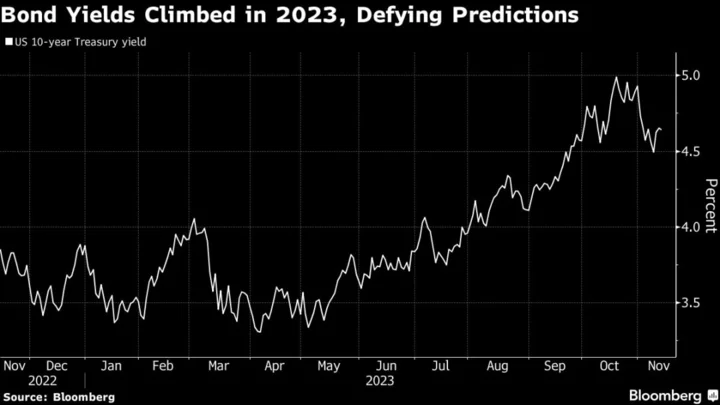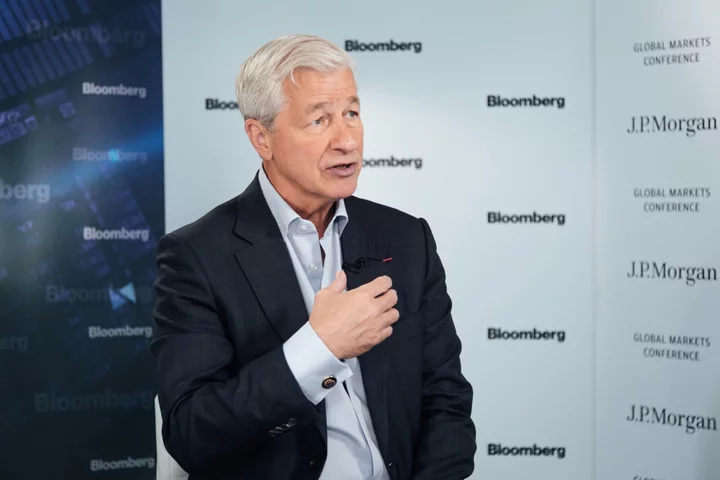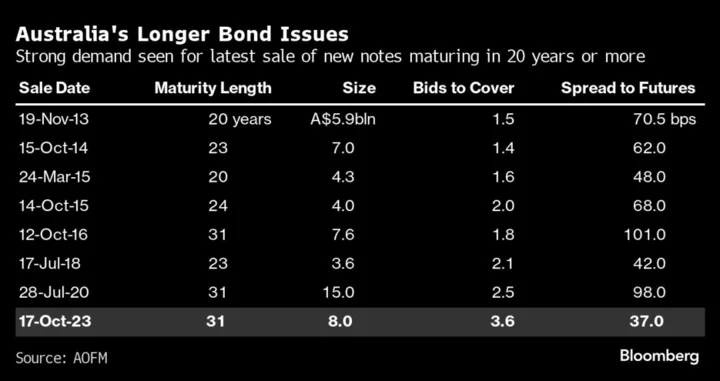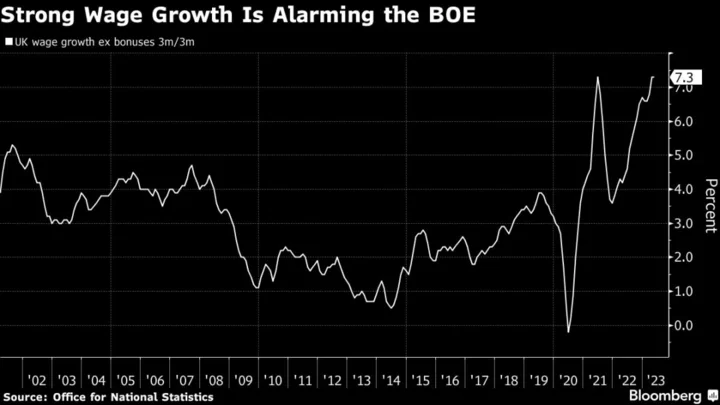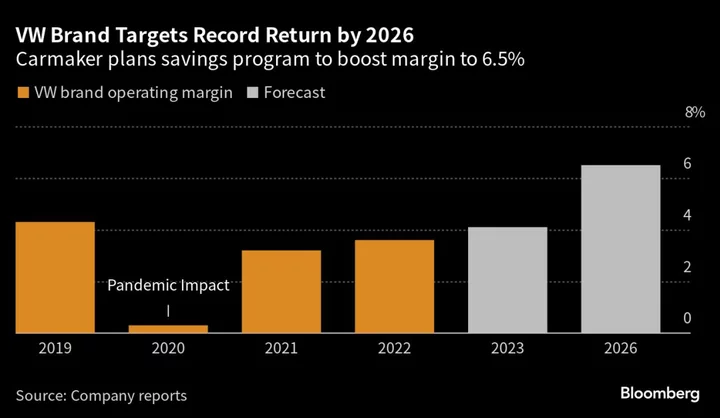Bond giant Pacific Investment Management Co. — among the many whose expectations for a rally this year were disappointed — is renewing the call for 2024.
Bonds “have rarely been as attractive as they appear today” relative to stocks, Pimco managers Erin Browne, Geraldine Sundstrom and Emmanuel Sharef say in a new report predicting “prime time” for the asset class in 2024.
Pimco is among a growing number of investors doubling down on bonds, even as Treasuries are on course for a historic third straight annual loss. The latest Bank of America Corp. survey of fund managers shows the group has turned the most bullish on bonds since the global financial crisis, based on a “big conviction” that rates will move lower in 2024.
The bond market has confounded investors this year, a period that saw the benchmark 10-year Treasury yield climbing from around 3.87% to over 5%, before retreating to around 4.5%. Following seven interest-rate increases by the Federal Reserve in 2022, many expected an economic recession this year that would spur the central bank to cut rates. Instead, the Fed raised rates four more times — and Chair Jerome Powell has reiterated more could follow if the inflation rate stays high.
Pimco, which manages $1.74 trillion, was among the hopeful, writing in January that “bonds are back” as a recession was likely this year. Instead, the labor market remained resilient even after several regional bank failures in March, and inflation is still more than a percentage point above the Fed’s 2% target. The Bloomberg Treasury index is down 1.2% in 2023, after losing 12.5% last year and 2.3% in 2021.
The asset manager’s outlook for 2024 puts the odds of a US recession at around 50% and anticipates a declining inflation rate.
On Tuesday, a government report showed US consumer prices cooled in October, prompting a rally in stocks and bonds. Interest-rate traders are betting that the Fed’s tightening cycle is over, and that cuts will start around mid-2024.
US Treasury bonds “historically have tended to provide attractive risk-adjusted returns” once growth and inflation have peaked, “while equities have been more challenged,” the managers write.
The analysis is based on current yields and equity earnings multiples. Since 1976, today’s yield levels in high-quality bonds have been followed by five-year returns on the order of 5% to 7.5%, while today’s valuation of S&P 500 Index stocks — using a cyclically adjusted price/earnings ratio — has been associated with long-term underperformance.
“History suggests equities likely won’t stay this expensive relative to bonds,” making this “an optimal time to consider overweighting fixed income in asset-allocation portfolios,” the managers write. Equity fundamentals warrant “a cautious neutral stance.”
The BofA survey showed that fund managers favored both stocks and bonds, while moving out of cash. The monthly survey showed investors flipped their positioning on equities to overweight for the first time since April 2022. They also boosted the overweight position in fixed-income assets to the highest since 2009.
“Investor playbook for 2024 is soft landing, lower rates” and a weaker dollar, Bank of America’s Michael Hartnett wrote in a report.
Pimco expects stocks and bonds to “resume their more typical inverse relationship” in 2024, in which bonds rally when equities fall and vice versa. That relationship is a bedrock of popular multi-asset strategies such as 60/40 portfolios, which produced losses in 2022 and during much of this year.
Read More: Pimco Sees Bonds Benefiting as Markets Overlook Recession Risk
Pimco’s investment outlook for the next six months also maintains:
- Fixed-income duration is particularly appealing in the US, Australia, Canada, the UK and Europe, and unattractive in Japan, “where monetary policy may tighten notably as inflation heats up”
- US stocks are more reasonably valued when the seven largest technology companies are excluded, creating “compelling opportunities for alpha generation through active management”
- Corporate credit spreads are less appealing than spreads in mortgage-backed and securitized assets such as collateralized loan obligations and collateralized mortgage obligations
--With assistance from Ye Xie and Farah Elbahrawy.
(Adds Bank of America’s survey of fund managers in 3rd paragraph)

